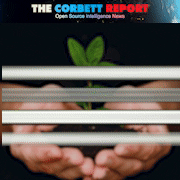Podcast: Play in new window | Download | Embed
[CLICK HERE to continue watching this report on BoilingFrogsPost.com]
by James Corbett
BoilingFrogsPost.com
October 16, 2012
For years now, the drumbeat for war with Iran has been growing steadily louder from the Likudniks in Israel and their ideological bedmates in Washington. Weary, exhausted, and economically depleted after a year of disastrous entanglements in the Middle East, it is hard to believe that the American public is eager for yet another conflict, yet every few months without fail there are new signs that the Israeli leadership is sharpening their tools of warfare and cries are renewed in the corridors of power in Washington for unflinching support for whatever action Tel Aviv decides to take. As we examined last week, this drumbeat has reached fever pitch yet again in the last few months, and now Washington insiders, think tanks and policy wonks are once again openly discussing the possibility of staging a false flag event to blame on their Iranian enemy and launch a “retaliatory strike.”
But what would the fallout of such an action be? Well, for starters, there would be literal fallout.
Although almost never discussed, one consequence of any armed strike on a nuclear facility like the ones in the Iranian nuclear program is the potential release of radioactive materials into the atmosphere.
At a fuel enriching plant like that at Natanz, or a research reactor like that at Isfahan, the risk is that bombings or other military strikes would cause the release of corrosive and poisonous chemicals including pure fluorine and uranium hexafluoride. These gases are lethal, but since they are heavy gases they would not spread much beyond the immediate area of the plants themselves.
Of far greater concern would be a strike on the Bushehr nuclear power plant. As Mark Fitzpatrick of the International Institute for Strategic Studies in London told the Asia Times Online earlier this year, “Bombing Bushehr would be worse because the irradiated fuel would release radioactivity into the atmosphere.” In a worst-case scenario, if all redundant cooling-power systems were knocked offline, it could lead to a Fukushima-style meltdown in the reactor.
But the facilities aren’t the only concern in the event of a military strike on Iran. At issue also is what type of weapons might be used against Iran in such a campaign. For years now, the United States has been trying to “legitimize” the use of first-strike nuclear weapons by deeming them as tactical weapons. As long ago as 2005 the Union of Concerned Scientists was warning of proposed nuclear bunker busters that the US has intimated could be used in a strike of underground Iranian facilities.
Assuming there was an identifiable region left to inhabit in the wake of such a strike, what would the next stage of such a strike be? As expert after expert has been warning for years now, the almost inevitable result would be to draw in some of the largest military powers in the world in what could be the largest conflict in human history.
The economic fallout from a strike on Iran has the potential to be no less deadly, in the long run, if somewhat less spectacular. Given the precarious nature of the global economy as it is, it is not difficult to imagine how even a “small, contained conflict” in the Middle East, could that even be achieved, may be the very thing to send the global financial system teetering over the precipice.
In many ways, we have reached a point in the development of our civilization where the future survival of the human race is predicated on our ability to avoid conflicts of the very sort that are currently being mulled in the proposed attack on Iran. In terms of physical weaponry and economic instability, we are in no position to face the scale of calamity that could be unleashed by an Iranian war.
Still, the politicians with their itchy trigger fingers, and the think tanks and talking heads that justify their actions, would have us believe that an attack on Iran would be a mere cakewalk, and, just like in Iraq, or Afghanistan, or any of the other conflicts in the preceding century of bloodshed, we would be greeted as liberators by those whom we seek to blow up.
For those Americans who can see beyond these infantile delusions, it is an uphill battle to convince others of the urgency of this issue. After all, there is a presidential election race underway. One can only hope that, when that race is decided one way or another, enough citizens who can see beyond the red/blue political charade can be energized to make a strong, viable anti-war opposition the cultural force that it has been in times past.
The fallout, should the world fail in such an endeavor, may be too ghastly to contemplate.








0 Comments
Trackbacks/Pingbacks